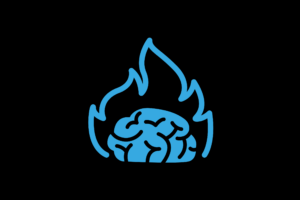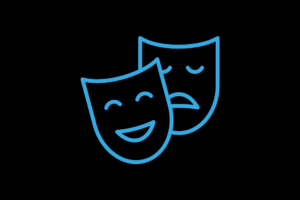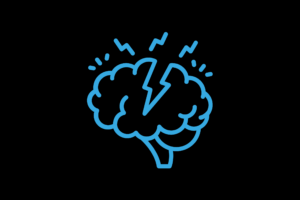Masking is where you change your behaviour in order to ‘fit in’ with others and not ‘stand out’. Sometimes this is a conscious decision, but it can also be something you do without even thinking about it.
Masking takes a lot of energy and often means putting up with situations that you find uncomfortable or distressing. Sometimes short-term masking can be useful, or it might be needed in order to keep you safe, but long-term masking can lead to poor self-esteem, exhaustion and burnout.
You might find you reach a point where masking feels almost impossible, or where you want to explore more about who you really are and be accepted for being your true autistic self. This process is called ‘unmasking’.
“One of the main reasons I was diagnosed when I was older was because I reached burnout, after 40 years of trying (and often succeeding) to fit in and keep up with everyone else I exhausted myself.”
“Unmasking can be really hard, but a lot of us autistic adults know how important it is. If I accepted my differences rather than trying to ‘fit in’ when I was younger, I would have avoided a lot of difficulties I have experienced.” – Autistic 26 year old
If you have been masking for a long time you might not be sure of who you really are, and you might be worried about how other people will respond to you, so unmasking can feel quite scary and overwhelming! Unmasking can be quite difficult and it’s important to go at your own pace and start with people and environments that feel the safest to you.
Tips for unmasking
Explore who you really are – Take some time to think about what you enjoy spending your time doing, and noticing what you behave and feel like when you are alone. You might find you feel more relaxed when you are by yourself, and that you let yourself do the ‘weird’ things that you usually hide from other people.
Try to accept all the wonderful weirdness that makes you ‘you’. This can be hard if other people have taught you that the way you feel and the things you do are ‘wrong’ as you may have started to believe them. Learn as much as you can about autism and about yourself. Think about what makes you happy. The more you understand yourself and how your brain works, the more you will realise that you are not broken or wrong.
“We all have hidden strengths, quirks and talents, being able to display these proudly and work with them allows us to be our authentic self and the best we can be without exhausting ourselves.”
Read more about leaning into your strengths here.
Connect with other autistic people – It can be helpful to find a community of other autistic people to spend time with. Being around other people who also communicate in the same way you do, and who won’t judge you for things like stimming, can create a safe environment for you to unmask in.
Ask for accommodations – Once you understand yourself better and know what you need to feel comfortable in an environment, you might find it is more difficult to go back to masking or suppressing your true self in certain situations. You can advocate for yourself in these spaces by asking for accommodations, or support – this means being confident in asking people for things to change so that you don’t have to suffer or mask your struggles to please others. At first this can be hard and you might worry that you’re being an inconvenience to people, but the more autistic people advocate for adjustments to be made, the more aware the rest of society becomes. You might even be helping out another autistic person in the same environment who hasn’t yet unmasked!

A collaboration between:
-
Wendy Binnie, autistic adult
-
Kirstie McStay, Autistic Parent, Under 13 Community Manager at Spectrum Gaming



